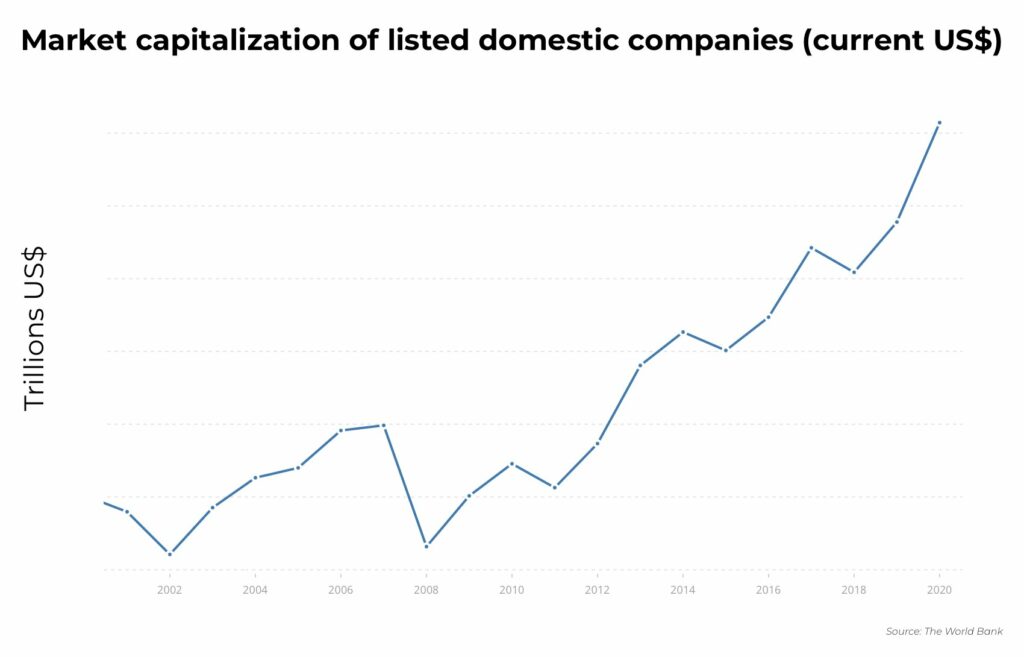- proposed Climate Disclosure Rule means every US public traded company must report exposure to climate change risks
- proposals include Scope 3 emissions found in supply chains
- EU’s Corporate Sustainability Reporting Directive will require large companies to disclose sustainability and environmental risks
Subscribe for Investment Insights. Stay Ahead.
Investment market and industry insights delivered to you in real-time.
Imagine that every public company in the United States must publicly report its impact on climate change, and then imagine the effect that would have on how quickly they plan to meet their net-zero targets.
A new law proposed by the US Securities and Exchange Commission (SEC) proposes exactly that. Hugely ambitious, the Climate Disclosure Rule would mean US publicly traded companies must report their exposure to climate change risks, including greenhouse gas emissions.
And, there’s more, 500 pages more. But two things stand out for the voluntary carbon credit markets.
These companies and global supply chains will not be able to reduce their carbon emissions over night. And this is where the voluntary carbon markets come in.
Anthony Milewski, The Oregon Group.
Firstly, the new law proposes that companies must disclose in much greater detail on the carbon credits they are investing to offset their carbon emissions. This includes the role those carbon credits play in the company’s climate strategy. The lawyers will likely argue it out but, to judge the quality of the credits, it’s highly likely such reports will include details on prices, projects, vintages.
Not only is this validation of the role carbon credits can play in supporting the fight against climate change for business, but it is also validation on the drivers behind demand pushing up prices for high quality carbon credits.
Each carbon credit represents one metric ton of greenhouse gas (GHG) that has been prevented from entering or removed from the atmosphere. But the financial value of each credit varies considerably, depending on its impact on local communities and wildlife, the year it was issued or its vintage, and other public relations factors that the buyer deems valuable.
Subscribe for Investment Insights. Stay Ahead.
Investment market and industry insights delivered to you in real-time.
For every publicly traded company in the US to be producing these full disclosure reports, giving a company’s sustainability value the same credibility as its finances, will not only mean increased transparency and accountability for investors, but also consistency in business climate risk reporting. As the lawyers and accountants across the country teams up, such standardization in reporting will again further support the inherent value found in the great diversity of carbon credits.

The second thing in the new SEC rules — these proposals include Scope 3 emissions found in supply chains. This is important because, for many companies, the majority of their emissions are not within their own operations. If your goods are made in China and shipped in a tanker across the Atlantic, these climate-risks will now have to be officially accounted for and disclosed, impacting the entire supply chain. Basically, no offshoring of carbon emissions which, in turn, significantly expands the reach of this law globally.
And this law is not pushing against a locked door.
The EU’s upcoming Corporate Sustainability Reporting Directive will require all large companies to disclose their sustainability and environmental risks. Japan, Canada, New Zealand and others are also incorporating climate risk disclosure into legislation.
All of these companies and global supply chains will not be able to reduce their carbon emissions over night. And this is where the voluntary carbon markets come in. The voluntary carbon markets don’t pretend to be the long-term answer to climate change and net-zero, but they can support companies in the short and medium term.
The SEC is giving fair warning, so many will already be moving to get ahead of the game. The short-term starts now.
Subscribe for Investment Insights. Stay Ahead.
Investment market and industry insights delivered to you in real-time.




















